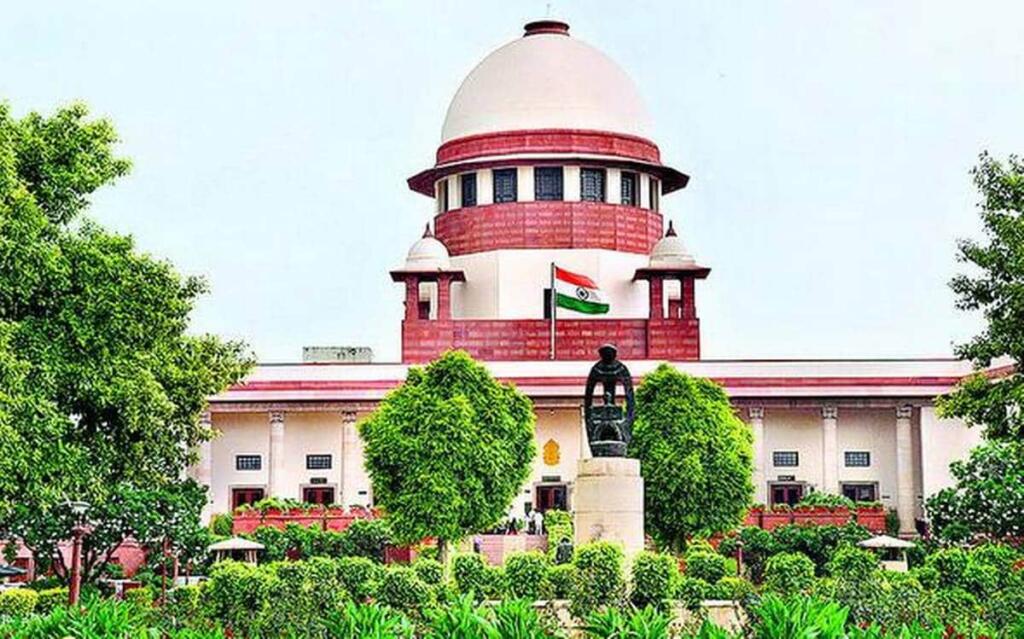From the last two decades, there have been a lot of hues and cries about the red-tapism prevalent in the judicial setup. While the problem is constantly discussed in public forums, very little effort has been put in to address the underlying cause. Now Judiciary has opened the gate for a solution by assessing that the painfully slow India’s judicial process is the outcome of hastened law-making by the legislature.
CJI cites bad laws as the main reason behind pending cases
NV Ramana, the current chief justice of India has come forward to identify the root cause of India’s snail-paced judicial procedures. According to him, the government does not follow due diligence in formulating law and assessing its impact on society.
Speaking at the valedictory ceremony of Constitution Day celebrations in the presence of President Ram NathKovind and Union Law Minister Kiren Rijiju, Ramana informed that the Judiciary on its part has provided several suggestions to the government. He thrust his opinion that the issue of delayed justice delivery mechanism is multi-faceted in nature and needs various organs of the state to solve the crisis.
CJI appreciates government efforts but calls for more federal reform
Citing section 138 of the Negotiable Instrument Act as an example of a badly drafted law, he said, “Another issue is that the legislature does not conduct studies or assess the impact of the laws that it passes. This sometimes leads to big issues. The introduction of section 138 of the Negotiable Instruments Act is an example of this. Now, the already-burdened magistrates are further burdened by thousands of these cases. Similarly, re-branding the existing courts as commercial courts, without creating a special infrastructure, will not have any impact on the pendency,”
Read more: PM Modi’s no-holds-barred speech aimed against Climate change faketivists and the Judiciary
CJI also appreciated the Modi government for its allocation of Rs 9,000 crore to improve the judicial infrastructure. However, he said that funds were never the real problem; the real problem is that some states do not utilise the fund. He also requested the central law minister for establishing a special purpose vehicle for judicial infrastructure.
Read more: The President and the PM’s clear advice to top judges is a sign of things to come in the judiciary
Lawmaking and role of leftists intellectual in drafting bad laws
While CJI is right in his assessment that Legislature’s carelessness contributes to the problem of judicial delays, it is pertinent to note that it’s not only the legislature that forms the law.
Law-making in a diverse country like India is a complex process. One size fits all formula has an extremely low possibility of working in India. So, the legislature decides to involve a consultative process to arrive at the final draft of the law. These consultative processes involve various rounds of deliberations with subject matter experts, eminent academicians, chancellors of Universities like JNU, heads of various study groups, and policy research bodies like the Center for policy research, etc.
Intellectuals copy western Marxist ideology and paste it into the Indian context without any forethought
The problem with these consultative processes is that the people and institutions involved in the process have remained tainted for more than 70 years of the existence of independent India. Moreover, these institutions do not have their methodology or ideology of their own and simply copy western Marxist ideology.
These left-wing ideologues divide the society into oppressor vs oppressed under which one section of the society will always be oppressed while others will also be oppressors. Now, to hypothetically uplift these oppressed sections of the population, they advise the legislature to drift away from legal principles. The laws going against the legal principles are one of the most significant bones of contention for the judiciary.
“Accused is assumed innocent before law” principle sidelined by academicians drafting the laws
One of the most significant legal principles basing the modern judicial system is that “an accused is presumed innocent until he/she is found guilty”. This principle has been applied keeping in mind that Humans have a tribal mentality and if the accused is burdened with proving his/her innocence, it would lead to a plethora of cases and false convictions by the people looking to settle their personal scores.
In the Scheduled Caste and Scheduled Tribe (Prevention of Atrocities) Act, 1989, the Government riding on populism decided to do away with this fundamental legal principle. It has led to a plethora of fake cases by the erstwhile ‘oppressed’ group on the presumed upper-class section of the society. In January 2021, Rajasthan police reported that more than 40 percent of these cases are false. Various other such data are available which nullifies the concept that there is a birth-wise division of upper caste or lower caste in the society.
Read more: The unfair hounding of MunmunDutta despite her apology shows how blatantly SC/ST Act is misused
The same goes for Dowry Prohibition Act, 1961. Originally meant to provide relief to women suffering due to torture by their in-laws, the act has become a tool to settle personal scores by harassing women members of the husband’s family. As reported by the TFI, more than 98 percent of dowry cases turn out to be fake in courts.
Read more: ‘Financially independent women not eligible for alimony after divorce’, says Calcutta High Court
Honourable CJI seems to have missed the point that the same kind of people whose opinion they read in the morning newspapers are also involved in the making of laws on which he has to base his judgement. It will be better for the country if the law-making process involves consultation from intellectuals of both the right and left spectrum.
